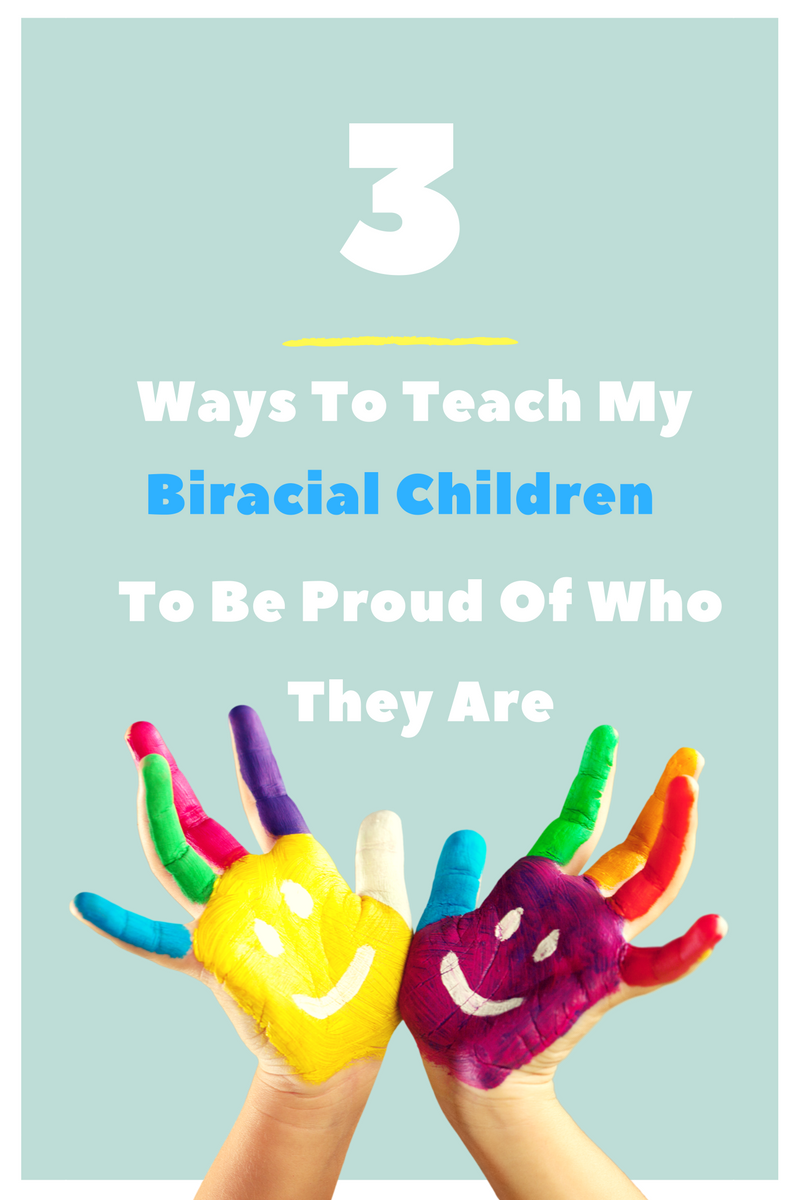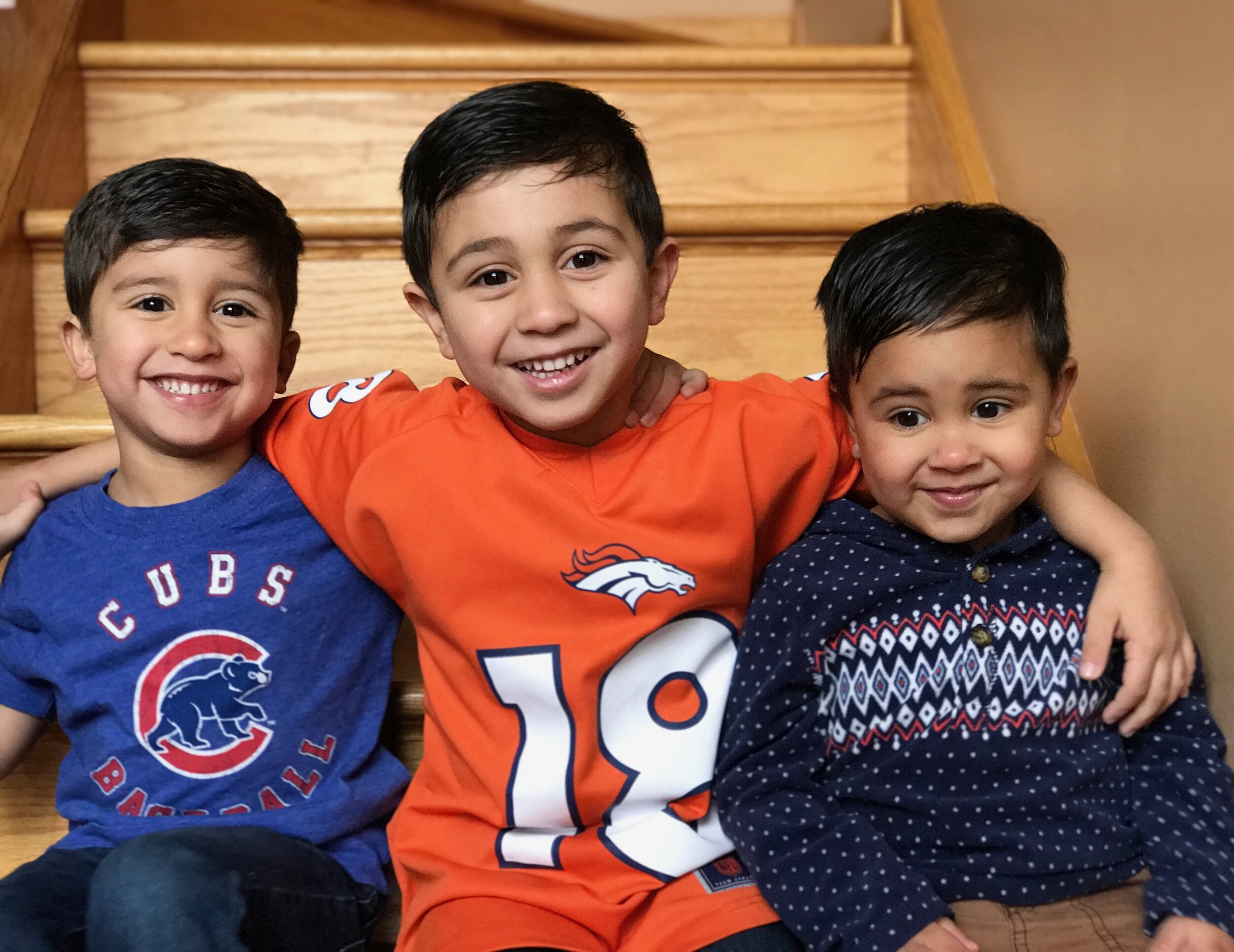How Can You Teach Your Biracial Child To Be Proud Of Who They Are
Teaching Your Biracial Child To Be Comfortable In Their Own Skin
Being a child is hard. We always tease our kids about their "difficult" lives when they're throwing a tantrum over too much jelly on their sandwich, but hey. While the jelly dilemma is full of toddler drama, kids really do face some difficult challenges.
As a child, they don't know who they are and there is an inevitable realization for them. One day, they're going to wake up and realize they're different from their friends. As a biracial child or a child in an intercultural family, they're going to realize they don't like their friends or don't sound like them.
My husband went through his inevitable realization after he moved to the US from India...
While my mother in law was finishing nursing school, my husband lived with his relatives in India. After a few years and a nursing degree, he moved home to his parents. At the time, Telugu was his first language. He understood English, but he was more comfortable with Telugu as that was what he had been speaking for the last few years.
He was both excited and terrified to start school. He knew right away that he was different from his friends, but the idea of making new friends was all he could think about.
On my husband's first day of school, he was asked to tell the class about himself. He started to tell everyone about his kukka (dog) when they erupted into laughter. They started teasing him and asking why he talked funny.
In that moment my husband made a choice. He didn't want to be different than his friends and stopped speaking in Telugu in front of anyone, but his family. He even lost his accent as soon as he could.
He was only four or five years old when this happened. As a little boy he knew that there was something different about himself and was embarrassed. As an adult, he still regrets that. He still speaks Telugu, but no where near what he could have if he had made a different decision and continued speaking it fluently.
As the parents of biracial children, it's our responsibility to teach them how valuable their differences are. Those differences are what make up our beautiful children and we need to find a way to teach this to them. Here are 3 ways to encourage children to love themselves as the unique and biracial children that they are.

Surround Your Child With Diversity
Your child needs to be surrounded with diversity. They need to understand that they live in a diverse world and not feel like the only biracial child around.[tweetthis display_mode="box"]The more diversity your children are exposed to, the more comfortable they are with themselves. #aiwtribe #mkbkids [/tweetthis]You can do this by showing diversity in their books, food, friend groups, school, movies, and more. This doesn't just mean their own culture. They need to be exposed to multiple cultures because it creates an environment of acceptance rather than intolerance.Plus, it's exciting! It's always fun to learn about new cultures and the more they learn, the more they're going to want to teach their friends!
Reject Negative Messages About Biracial Kids
It's easy for kids to start believing the messages that society tells them. Society tells them they aren't good enough. As their parents, it's your job to tell them they're amazing as they are every day. Build their confidence now so they can face negative racial messages later.The more comfortable your children are with themselves, the more likely they are to educate ignorant people rather than respond in anger. People are going to say mean and negative things. As much as you would love to prevent your child from dealing with it, there's nothing you can do. What you can do is teach them how to respond.Their confidence will help them to challenge the ignorant statement rather than let it make them feel bad about themselves.
Encourage Your Child To Share Their Culture With Their Friends
Parents need to bridge the gap between encouraging their children to be comfortable in their own skin to becoming proud of what makes them unique. This can happen by showing them how fun it is to share their culture with their friends.You can have a special night where you have your kids invite their friends over for a special feast that includes traditional meals, invite them to a local cultural event, or watch a family friends foreign film together.When a child is proud of something, they want to shout it from the roof tops! They can't wait to tell special people in their lives about it. Culture should be the same way. If you're child is still uncomfortable with the fact their different from their friends, you may have to be the one encouraging them.Start by taking your entire family to a fun event that shows off your culture. Ask them if they want to bring someone. If they don't it's ok. Give them time. The more common it becomes for your family to do these things, the more comfortable they'll become and the more likely they'll want to show it off to their friends.

